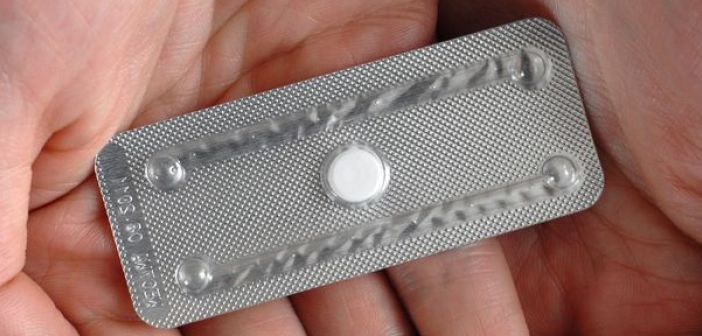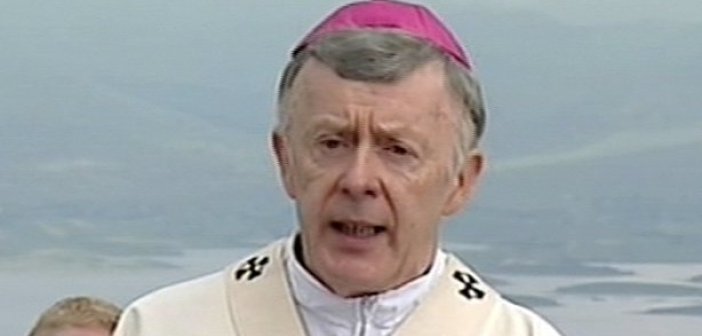The Complicated Relationship Between Abortion and Catholicism
We’d all rather this wasn’t an issue. We’d all rather women had the best and most advanced healthcare available at no cost in their own country. Much of what it comes down to is the queasiness around what abortion encompasses. And a significant amount of that queasiness comes from religious teachings that life begins at the moment of conception, and that the zygote and the foetus should be automatically conferred with full personhood. As such, to destroy this being constitutes murder and the woman responsible should face the attending punishment. I want to focus on this relationship, between religion and abortion in Ireland, by giving an insight into my perspective.
I have a distinct memory of being ten years old, stuck in traffic in Abbeyleix and looking up at the posters covering every lamp post in the street and asking, “why are there babies on all these posters?” “It’s for the referendum. It’s about people who want to kill them.” The 2002 referendum was the first time I became aware of the concept of abortion. I remember, of course, feeling confused – who wanted to kill babies? And why? The next time I came across the concept was probably in secondary school. There was a short section on abortion in our Home Ec book which said that women sometimes got abortions, but that it was harmful to their health, damaged their chances of having future babies, and was illegal in many places.

You could say that I’ve experienced a more intense Catholic background than a lot of my peers. In school, I chose to be a part of Meitheal – a Kildare and Leighlin diocesan-run youth peer ministry leadership programme, where ten sixth year students work together and act as buddies/mentors to the incoming first years. I also chose to go to the 2011 World Youth Day (WYD) event in Madrid with a large group from Portlaoise parish.[pullquote]There was a short section on abortion in our Home Ec book which said that women sometimes got abortions, but that it was harmful to their health, damaged their chances of having future babies, and was illegal in many places.[/pullquote]
It was a mostly positive experience and the apex of the week-long event was 2 million young people from around the world gathering together in an old airfield in the centre of Madrid to celebrate mass with the then pope, Joseph Ratzinger. One day, myself and a friend were in the middle of a group on the train (most likely on our way to mass) and the topic of abortion came up. Words like ‘selfish’ and ‘irresponsible’ were mentioned. I privately said to my friend that I had taken the morning after pill (MAP) once, just a few months after it had become available in *most pharmacies without a prescription and we wondered whether that technically counted as abortion.
Before we left Madrid, we received a Catholic youth pack which included a fan, a non-alcoholic beer and a catechism of the Catholic Church. I remember sitting on the floor of my room in the old convent we were staying in and flicking through the youth-friendly book. The section on abortion stated that it involves the taking of a life, and as such, is one of the gravest sins. “That is why the Church is perfectly clear on these questions,” was the pithy summation. The men who wrote this, these men with no families, these men with steady incomes for life, these men who will never be in danger of having their insides taken over by a foreign body and being forced to continue with that traumatic process – I suppose it must comfort them to be “perfectly clear” on these questions.

The book also contended that taking the MAP (as a form of contraception) could “endanger the woman’s health.” At the time, I didn’t know that taking the MAP was as safe as taking aspirin. My favourite part from that section was the warning that using contraception in general could “in the long run be detrimental to the couple’s love life.” The guy I’d been with at the time was only ever interested in me depending on the mood he was in so it seems like solid advice to suggest that if only I’d allowed myself be impregnated by him, our love life might well be thriving today. I can afford to be light-hearted about it now, but the reality in 2016 is that taking the MAP or ‘going over to England’ are simply not options for a huge number of women, including asylum seekers, homeless women and those in abusive relationships. Can’t pay? Forced pregnancy for you, so.[pullquote]The men who wrote this, these men with no families, these men who will never be forced to continue with that traumatic process – I suppose it must comfort them to be “perfectly clear” on these questions.[/pullquote]
When I look back, I’m somewhat amused at the irony of beginning to lose my Catholic faith at a Catholic youth festival. For most of my life, ‘Catholicism’ to me just meant the deity that I prayed to when I was scared or anxious. It was the place I went every Sunday morning as part of my weekly routine. It was where I felt a valued member of a community. Meitheal was the same, it was an overwhelmingly kind and collegial atmosphere, and so was most of my time in Madrid at WYD.
Although there was a lot that made me uneasy about being a Catholic generally, I tried not to confront these thoughts. But serious doubts were starting to creep in. More and more questions were emerging and I was finding it increasingly difficult to marry my personal beliefs with Catholic teachings. During the following two years, I gradually stopped going to mass and being involved in my local parish community, but there came a time when I decided to go to once more because it was the anniversary of a classmate who had passed away when we were both fourteen. Initially I felt awkward being back, but the familiar routine of the ceremony was comforting. But then the priest, who had appeared so genial, used the homily as an opportunity to vociferously condemn Ivana Bacik for supporting the Protection of Life During Pregnancy Bill in the Seanad. After he said his piece, I stood up and walked out of the church. This was in 2013.
I’m writing about my own personal relationship with religion and abortion because I don’t think it’s really possible to separate the two in Ireland, and it’s too rarely explicitly confronted. Just watch RTE news whenever there’s a debate in the Dail about abortion: a concerned-looking bishop will always be giving his opinion. Why? Should the church also be consulted when debating laws on robbery? Laws on bearing false witness? When children fail to honour their father and mother? Was there a special bishops’ conference to discuss adultery when the Ashley Madison story broke?

The debate on abortion doesn’t exist devoid of its history, and its history is intrinsically tied to the Catholic church. The posters that my ten-year old self saw in Abbeyleix without any sort of understanding are a part of this cumbersome debate, just as much as Maser’s superhero-like mural has become, stuck onto it like post-it notes. Also fixed onto it are lines from the catechism, rants by priests, repugnant actions from ‘Youth Defence,’ personal and compelling stories from journalists about their abortion experiences, tweets to Enda Kenny about menstrual cycles, the memory of our sisters who have faced the brutal might of unjust laws and died because of them, bickering comments on TheJournal.ie, endless Twitter exchanges and the tireless, unseen work done by NeedAbortionIreland.org and Women On Web.[pullquote]The reality in 2016 is that taking the MAP or ‘going over to England’ are simply not options for a huge number of women. Can’t pay? Forced pregnancy for you, so.[/pullquote]
This issue has so many facets and it is imperative that the relationship between abortion and Catholicism comes under greater scrutiny as we move forward. For example, a fact which is rarely mentioned in current discussions is that the Catholic church was the only religious group to actively campaign for the eighth amendment in 1983: the Irish Council of Churches opposed the legislation.
All that I can add to this overburdened conversation is my own perspective. My upbringing in a predominantly Catholic rural village in Laois, my Catholic primary school, my Christian secondary school, my experience with Catholic youth groups. So much religion, none of which I chose to be born into, and none of which I really questioned – until I did. I often wonder if I hadn’t gone to World Youth Day and been confronted with others who had much stronger beliefs than I, with beliefs incompatible with my own, would I still be a member of the church? If I’d become friends with a person who was kind, enthusiastic, interested in politics, committed to doing social good, an active member of the local community, and passionately anti-abortion, would I have become involved with the anti-choice movement? I want to believe that most people who are anti-abortion are good and kind people, and that they honestly believe that they are doing the right thing. That’s what makes it difficult for me personally: I could just have easily been writing an article for the Irish Catholic in defence of unborn babies, because being anti-abortion seems instinctively like the right thing to do.

If we are to win this debate, to win this referendum, to win the right to say no more forced pregnancies, it’s important to be cognisant not just of the rational arguments, but to remember that people will generally vote according to what they believe to be the right thing to do. And because the Catholic church is so virulently against abortion, because people who have abortions are automatically excommunicated, because there is just no escaping the centuries-old influence of such an embedded institution, many people will feel that perhaps the right thing to do is to vote against abortion, for the simple reason that ‘killing babies is wrong.’[pullquote]The debate on abortion doesn’t exist devoid of its history, and its history is intrinsically tied to the Catholic church[/pullquote]
When this destructive government finally holds a referendum on repealing the eighth amendment, there will be endless mud-slinging, debates, radio phone-ins, daytime TV polls, editorials, letters to the editor, but this is what people will be encouraged to choose between: Are you in favour of killing babies or are you not? The question must change to: Do you believe people capable of pregnancy should have absolute and unimpeded control over their own bodies? because this is the rational, humanistic and unemotional question at the centre of this ugly maelstrom.
To anyone who hasn’t thought about it, who doesn’t know, who isn’t sure – please be critical. Please question your assumptions. Please don’t accept what the church says. This is too important to rely on your intuitive sense of right and wrong.
